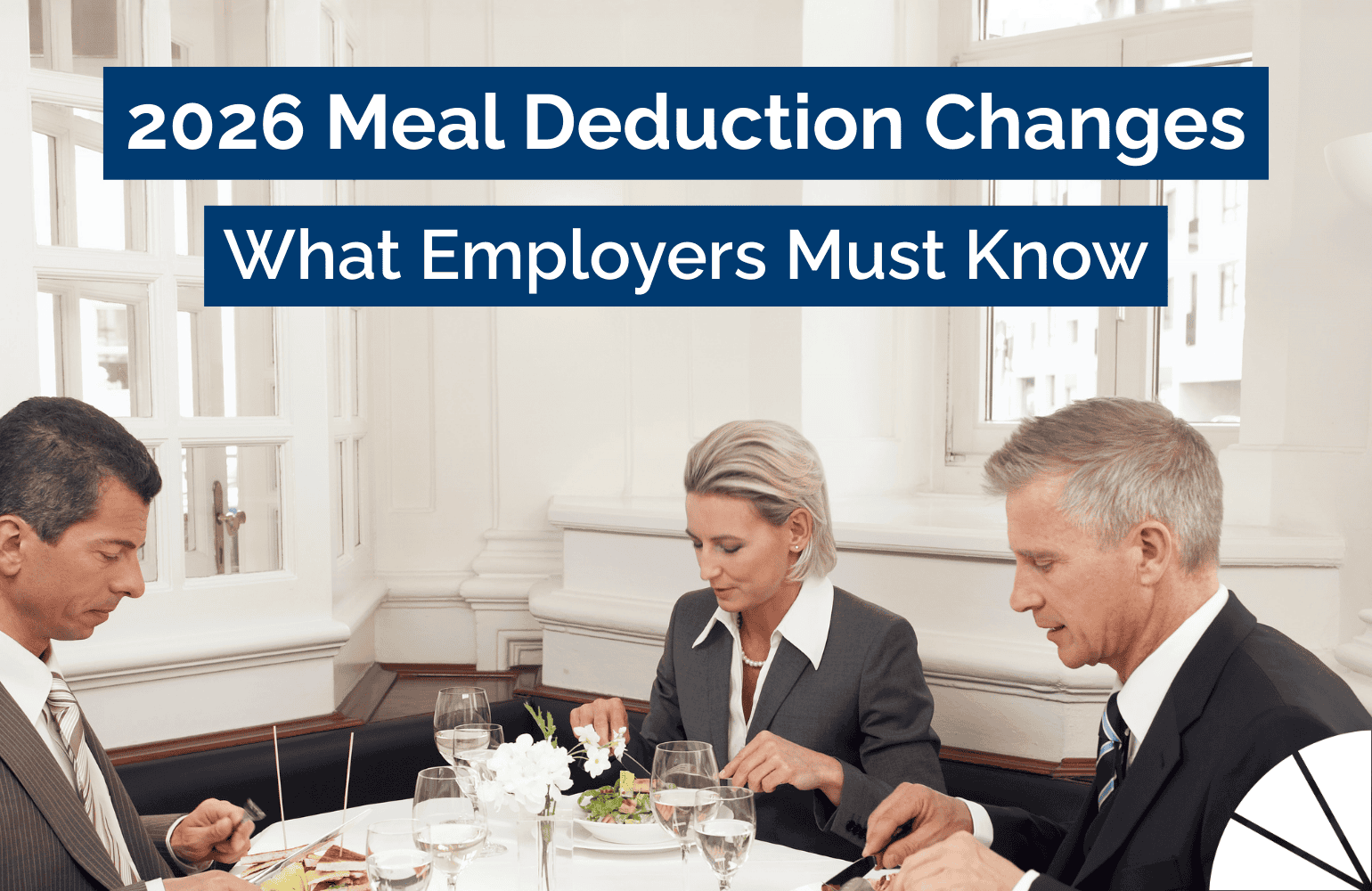
Authored by Aprio
Summary: Several new provisions introduced by the One Big Beautiful Bill will have a major impact on real estate owners, developers, and investors going forward. Below, Aprio’s real estate tax advisors break down the most important changes you should know plus advanced planning tips you can use to optimize your tax position.
As tax law continues to evolve (most recently with the passage of the massive One Big Beautiful Bill), real estate owners, investors, and developers face more complexity than ever before, which can make it difficult for them to manage their portfolios effectively.
In our recent webinar, “Navigating Real Estate Tax Strategies Under OBBB,” we sought to replace confusion with clarify and confidence. Real estate leaders Jim King, Jeff Winland, Julie Ayers, and Edward Griffith came together to discuss the practical implications of the OBBB tax provisions and share actionable tax strategies to help real estate owners, developers, and investors plan ahead.
From permanent tax benefits to enhanced depreciation strategies, keep reading for a detailed recap of the webinar and how you can harness the OBBB provisions to secure substantial tax savings for your real estate portfolio.
The qualified business income deduction is now permanent
Perhaps most significantly, the OBBB has made the qualified business income (QBI) deduction permanent under Section 199A. This provision allows eligible pass-through entities (including partnerships, S corporations, and sole proprietorships) to deduct up to 20% of qualified business income on their personal tax returns.
Previously set to expire in 2025, the permanent QBI deduction will provide much-needed certainty to developers, owners, and investors as they embark on long-term tax planning. What’s more, the OBBB legislation expanded QBI deduction eligibility, increasing income thresholds to $75,000 for single filers and $150,000 for joint filers. The OBBB also includes a minimum deduction of approximately $400 for filers with at least $1,000 of qualified business income.
Planning tip: Establishing trade or business status
To fully maximize the QBI deduction, taxpayers should qualify their rental activities as a trade or business.
What exactly does that mean for you in the practical sense? First, you must meet the following safe harbor requirements:
- Maintain separate books and records for each rental property or enterprise
- Document at least 250 hours of rental services performed annually by owners, employees, or contractors
- Keep detailed logs of activities, dates, and individuals who are performing the work
Triple net lease properties may qualify for the deduction when you group them together under the proper circumstances (even though these types of properties are not typically considered active businesses by the IRS). If you own multiple properties, consult with your tax advisor about strategic grouping to potentially unlock this valuable deduction and secure even greater savings for your portfolio.

Understanding non-corporate excess business loss limitations
The Tax Cuts and Jobs Act (TCJA) previously introduced limits on how much a business loss could offset certain types of income. Under the OBBB, these restrictions are now permanent. For 2025, business losses are capped at $313,000 for single filers and $626,000 for married couples filing jointly.
Keep in mind that this limitation will require you to take a different approach to year-end planning. Rather than following the traditional process of accelerating deductions and deferring income, you should consider accelerating your income and deferring expenses if you’re subject to excess business loss rules.
Strategic considerations
When planning around the business loss limitations, it’s important to consider a few key strategies:
- Time cost segregation studies to match years in which you have higher ordinary income
- Build a “war chest” of cost segregation studies to deploy strategically
- Evaluate whether to use ordinary losses against capital gains (taxed at lower rates) or save them for years with substantial ordinary income
- Understand that disallowed losses carry forward as net operating losses, preserving their value for future use
Opportunity Zones: A revitalized investment strategy
The OBBB has given new life to qualified Opportunity Zones (OZs) with a permanent extension. As a reminder, designated OZs can provide you with a range of powerful tax benefits, including:
- Capital gains deferral: These deferrals are similar to like-kind exchanges, but the difference is that they’re applicable to any capital gain, not just real estate. You can sell stock, business interests, or other assets and defer the gain by investing in an OZ fund.
- Flexible timing: Unlike 1031 exchanges, which require advance planning and qualified intermediaries, you can make OZ investments at any time so long as they’re within 180 days of recognizing the gain. You generally have three options to choose from for when the 180-day period begins: the last day of the entity’s tax year in which the gain was recognized; the date the entity recognized the gain; or the due date without extensions for the entity’s tax return for the year in which the gain was recognized.
- Potential tax-free growth: You can exclude the appreciation on OZ investment gains from your taxable income if you hold them for the required period.
Note that the OBBB legislation will introduce rolling OZ redesignations every decade to help make sure the program serves its intended purpose: encouraging real estate development in underserved communities.
OZs vs. 1031 exchanges
One of the biggest advantages to investing in an OZ is that you only need to reinvest the gain amount, not the entire sale proceeds. For example, if you sell IBM stock for $1 million with a $500,000 gain, you can invest anywhere from $0 to $500,000 in a qualified OZ fund, allowing you to defer tax on the invested amount. With a 1031 exchange, you would need to reinvest the full $1 million to defer all the gains.
In addition, under the OBBB, recognition events now occur every five years rather than the previous single recognition date. It’s important for you to work with a qualified real estate CPA to carefully plan and time these taxable events.
Interest limitation rules: Making the right election
Section 163(j) limits interest deductions to 30% of adjusted taxable income. However, real estate trades or businesses can elect out of this limitation by accepting longer depreciation periods for real property.
If you are a residential real estate owner, the process of making the election is pretty straightforward; depreciable life extends from 27.5–30 years, which is a minimal change that will justify full interest deductibility.
On the other hand, commercial properties require more careful analysis. Under the OBBB, the election changes qualified improvement property (e.g., interior building improvements) from 15-year, bonus-eligible property to 20-year property without bonus eligibility. You and your tax team will need to crunch the numbers and determine whether the interest deduction outweighs the lost depreciation benefits, and how that trade-off impacts your larger tax picture.

Timing your election
Although the election is irrevocable, you can still delay making it. During the webinar, Aprio’s real estate leaders outlined a multi-tiered, strategic approach commercial real estate owners can consider implementing:
- Year one: Accept interest limitations while taking bonus depreciation on qualified improvement property.
- Year two (and beyond): Make the election once you have completed major improvement projects.
This timing strategy allows you to maximize depreciation benefits when capital expenditures are highest while preserving the option for full interest deductibility in subsequent years.
Cost segregation: Maximizing depreciation benefits
Now that the OBBB has made 100% bonus depreciation permanent for qualifying property acquired and placed in service after January 19, 2025, cost segregation studies have become more valuable than ever. Remember that these engineering-based analyses reclassify building components from 27.5-year or 39-year property into 5-year, 7-year, or 15-year categories eligible for immediate expensing.
The benefit to you will vary significantly by property type:
- Office buildings: Typically up to 20% of depreciable basis can be reclassified
- Garden-style apartments: Often achieve 25%–30% reclassification due to extensive site improvements and paving
- Warehouses: Generally 5%–22%, with parking lots being the primary driver
- Short-term rentals: Can reach 25%+ with pools and upgraded amenities
- Golf courses and RV parks: May exceed 40% due to extensive land improvements
Generally,cost segregation studies make the most sense for properties with purchase prices of $750,000 or more because they typically generate at least a 10:1 return on your investment. However, it’s important for you to consider your hold period; for instance, if you plan to sell a property within three years, depreciation recapture may offset the benefits you could incur from the study.
The good news? You’re not limited to performing cost segregation studies on newly acquired properties. In fact, you can apply cost segregation retroactively to properties that you purchased years ago through a catch-up depreciation adjustment without amending prior returns.
Qualified small business stock: An underutilized opportunity
Most real estate investments utilize pass-through structures, but if you have C-corporation holdings in other business ventures, you may consider utilizing the qualified small business stock (QSBS) exclusion under Section 1202.
With the passage of the OBBB, this provision allows you to exclude gains from certain C-corporation stock sales up to $15 million; the legislation also raises the eligible company size to $75 million in assets. If you hold non-real estate investments in your portfolio, the QSBS provision can give you a significant opportunity to secure further tax savings and boost your bottom line.
Final thoughts
Now that many lucrative real estate tax provisions have been made permanent under the OBBB, long-term planning opportunities abound for owners, investors, and developers. Whether you’re acquiring new properties, managing an existing portfolio, or planning for eventual disposition, it’s essential for you to enlist the help of a qualified, real estate-specific team to tailor tax strategies to your specific circumstances.
Please connect with your advisor if you have any questions about this article.
This article was written by Aprio and originally appeared on 2025-11-06. Reprinted with permission from Aprio LLP.
© 2025 Aprio LLP. All rights reserved. https://www.aprio.com/navigating-real-estate-taxes-under-the-obbb-key-opportunities-for-owners-developers-investors-ins-article-re/
“Aprio” is the brand name under which Aprio, LLP, and Aprio Advisory Group, LLC (and its subsidiaries), provide professional services. LLP and Advisory (and its subsidiaries) practice as an alternative practice structure in accordance with the AICPA Code of Professional Conduct and applicable law, regulations, and professional standards. LLP is a licensed independent CPA firm that provides attest services, and Advisory and its subsidiaries provide tax and business consulting services. Advisory and its subsidiaries are not licensed CPA firms.
This publication does not, and is not intended to, provide audit, tax, accounting, financial, investment, or legal advice. Any tax advice contained in this communication (including any attachments) is not intended or written to be used, and cannot be used, for the purpose of (i) avoiding penalties under the Internal Revenue Code or under any state or local tax law or (ii) promoting, marketing or recommending to another party any transaction or matter addressed herein. Readers should consult a qualified tax advisor before taking any action based on the information herein.





